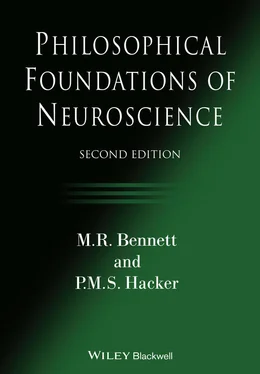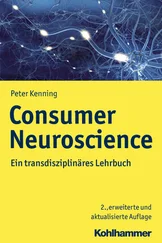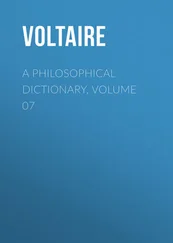1 ...8 9 10 12 13 14 ...47 It is perfectly true that the mereological principle and the mereological fallacy run like a leitmotif through the book. But that is because this pervasive mistake causes misunderstandings, misinterpretations of the results of experiments and faulty design of experiments. So we could not avoid mentioning it in our conceptual investigations into the forms and structures of human faculties and their exercise. However, our general explanation is to be found in chapter 3and is now clearly separated from other important conceptual flaws.
Third, Philosophical Foundations of Neuroscience was and is designed as a handbook for cognitive neuroscientists , a handbook to be consulted before commencing conceptualization and design of experiments on specific human faculties and their exercise. Reviewers and philosophers apart, we do not expect many of our cognitive neuroscientist readers to read through the whole book at successive sittings. For most such readers, this is a reference work, Parts IIand IIIof which are to be consulted chapter by chapter as necessary. ( That is why we have allowed a fair amount of overlap and some repetition, so that each chapter should be reasonably self-contained.) The chapters in Part IIcover the themes of sensation; perception; knowledge; memory; belief; thinking; mental imagery; perturbations, agitations and emotions; voluntary movement, voluntary, purposive and intentional action; executive control; automatic and mechanical behaviour. Part IIIis concerned with a battery of topics linked with consciousness, and has little to add on mereological errors. Its purpose is to shed light on a wide range of themes that preoccupy contemporary neuroscientists: on intransitive and transitive consciousness, on perceptual consciousness and consciousness of facts, on self-consciousness in its manifold forms and on qualia or the so-called qualitative character of experience.
Fourth, many neuroscientists and cognitive psychologists may be puzzled why philosophical analysis of salient concepts should have any relevance to the experimental neuroscientist. Some think that philosophy is now obsolete, that the great problems of philosophy over the last two and a half thousand years are destined to be resolved by study of the brain. Neuroscience, many believe, is solving the venerable problem of free will – showing experimentally that freedom of action is a delusion produced by the brain. Similarly, it is widely believed that the cognitive neuroscience of perception proves that perceptual qualities, such as sound and colour, do not exist in the ‘external world’, but are fictions produced by the brain, in the brain. Others demonstrate to their satisfaction that memories are stored in the brain at synaptic connections or cells – a modern variant of engrams. American neuroscientists commonly appeal to the 1890s work of William James as the still unsurpassed work of psychology and cognitive science. As we show, James’ s book The Principles of Psychology is a goldmine of conceptual confusions, from which much can be learned.
One reason for the widespread belief that philosophy is obsolete is that, with a history of more than two thousand years, philosophers are still alleged to be arguing over the same old problems that preoccupied Plato and Aristotle. But this is both an exaggeration and a misunderstanding. It is an exaggeration in as much as there are numerous philosophical questions that do not and could not appear in the works of Plato and Aristotle, such as the nature of alternative geometries, the post-Einsteinian puzzles about space-time, the differences between the voluntary and the intentional. It is a misunderstanding in as much as neuroscientists do not realise why so many of the deepest problems of philosophy have to crop up, in slightly different forms, every generation and have to be tackled de novo by each generation. This we try to explain by reference to the fact that the potentiality for conceptual confusion is buried deep in our language. Such confusions can be eliminated for a few decades by painstaking conceptual analysis. But they will rise again, as younger generations fall into the same traps. Sense data died under critical onslaught in the 1950s and 1960s, but by the end of the century internal representations arose phoenixlike from their ashes.
Numerous scientists find puzzling the thought that a priori reflection can have any bearing on experimental science, and that experimental science, while it can present new conceptual problems for connective analysis, cannot show logico-grammatical analyses to be mistaken. It is surely impossible that a few minutes’ armchair reflection on the use of a couple of words in English should be able to trump painstaking experiments of the greatest sophistication, using instruments that probe the functioning of the brain, that are successfully repeated all over the world. It seems equally baffling to suggest that a well-constructed neuroscientific experiment should not be able to prove false the grammatical conventions of a prescientific language concerned with perception, thought, affection and will in all their forms. Logico-grammatical analysis investigates mere words , but neuroscientists are concerned with reality . Cartesian dualism, it is argued, was shown to be false by the discovery of the law of conservation of momentum. That an immaterial substance might affect the total quantity of momentum would violate the laws of physics .
This is mistaken. Cartesian dualism is not shown to be false by the advance of science, for science can show something to be false only if it makes sense. If it makes sense then it is intelligible that it be true even though it happens not to be. If the Cartesian mind were able to change the direction of motion of the body by acting on the pineal gland, then the so called system of the physical universe would not be closed, as philosophers of science commonly suppose it to be, and the Law of Conservation of Momentum would be false. But the flaw in Cartesian dualism (or, more generally, substance-dualism) is not that it is false but that it is not coherent. It makes no sense, because the idea of an immaterial, spiritual substance is incoherent. It lacks both synchronic and diachronic criteria of identity. The idea that an immaterial substance might be an active agent in the material world, with the powers to causally affect the pineal gland by acting on it thereby releasing animal spirits into the nerves, makes no sense. It is not a false theory but an incoherent conjecture.
Conceptual analysis is to neuroscience what the differential calculus is to physics: a neuroscientist cannot do without it , whether he likes it or not. He can take for granted a received conception, often rooted in past defective analyses (e.g. by William James or by von Helmholtz ), or he can confront the received assumptions and reflect on them. It is for those striving to think for themselves that we offer our work as a set of guidelines. For on most of the major themes of cognitive neuroscientific research we try to provide the major conceptual characterizations, depicting the logical geography of the domain.
Conceptual mistakes have real consequences, for our concepts unavoidably guide both practice and interpretation. These consequences in neuroscience are of at least three kinds. First, if a neuroscientific experiment misconstrues its actual subject matter, then no matter how internally consistent it is, its results will have no practical, real-world implications, since its results are hermetic to the misguided framework within which the experiment is constructed. An example here is Libet’ s conception of voluntary action, which has not in practice stopped anyone from changing their behaviour in the several hundred millisecond interval preceding the movement with regard to which we are allegedly mere automata. Second, an incoherent scientific theory built on perfectly valid data will fail in inductive, predictive reasoning, just as an equation in physics that contains a covert division by zero will fail in its predictive use. Once the incoherence has been realized, one need not wait for the zero values to be entered into the equation to know that a theory based on such an equation is going to be worthless. Hence investigations of the neuroscience of memory that rest on the assumption that memory is of or about the past , or that memory is exhibited by any change of behaviour consequent upon prior experience , can be rejected in advance of any experiment. For memory is acquired in the past , but it need not be of the past – it may be of or about the present, the future, omnitemporal or atemporal; and wricking one’ s ankle and thereafter limping is not remembering anything. Third, whether predictive or not, a scientific theory that is conceptually flawed cannot be explanatory. For explanation, even more than prediction, depends on the coherence and integrity of the conceptual framework within which it is constructed, no less than upon the empirical data it brings to bear on the explanandum. Of course, the empirical consequences of conceptual errors in neuroscience are not typically immediately obvious, especially when widely accepted by groups of working neuroscientists. However, such errors are not stochastic: if something makes no sense, there is no chance that it will later spontaneously acquire sense as the experiments unfold. It is true that in the past important discoveries have been made despite incoherent theories. But that is not a recommendation for incoherence. Incoherence is not an infantile disease that neuroscientific theories catch before they mature into received neuroscientific wisdom.
Читать дальше












